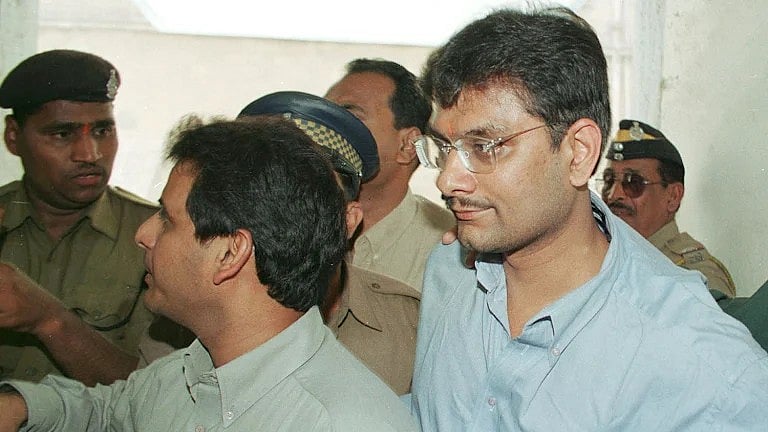Nation
Ketan Parekh, mastermind of 2000–01 market scam, faces SEBI opposition to overseas trip
Regulator warns former stock market operator may misuse foreign travel to evade surveillance and continue fraudulent trades

The Securities and Exchange Board of India (SEBI) has strongly opposed a plea by disgraced stockbroker Ketan Parekh to travel to multiple countries over the next four months, warning the court that his foreign trips could enable him to evade surveillance and continue fraudulent activities.
Parekh, once a key figure in the 2000–01 securities scam and barred from trading for 14 years, has sought permission from a special SEBI court to travel between 4 October 2025 and 3 February 2026. He requested clearance to visit the UK, UAE, Singapore, Thailand, Sri Lanka, South Africa, the European Union and Georgia, citing family reasons, two weddings, and the health of his elder daughter, who lives in the UK.
In a detailed response filed earlier this month, SEBI alleged that Parekh has previously misused limited travel permissions to engage in illegal market activity.
“The applicant has a history of misusing foreign travel permissions. While earlier permissions were sought on compassionate grounds, investigations revealed that during those periods he orchestrated fraudulent trades through WhatsApp groups like ‘Jack-ST’ and ‘Jack-Saro’,” the regulator said.
SEBI further accused Parekh of seeking to “settle in a foreign country” to continue schemes that could harm India’s economy and investors.
The market regulator highlighted an interim order passed in January 2025 in which Parekh and two others were again debarred for alleged front-running.
The order detailed how Parekh allegedly relayed time-sensitive information to Singapore-based trader Rohit Salgaocar within minutes, enabling illegal gains of Rs 65.77 crore. SEBI pointed out that Singapore is among the countries Parekh intends to visit and noted 151 instances of communication between Parekh and Salgaocar via WhatsApp and internet calls.
Published: undefined
According to SEBI, Parekh used multiple SIM cards not registered in his name and operated under aliases such as “Jack”, “Boss”, “Bhai” and “Wellwisher”, tactics the regulator said were aimed at concealing his identity and avoiding detection.
It warned that if allowed to travel, monitoring his movements or communications would be “impossible”, especially given the use of encryption and cryptocurrency to obscure transactions.
Special Public Prosecutor Anubha Rastogi told the court that the January order remains unchallenged and that a blanket four-month travel permit would make it harder to track Parekh’s activities.
SEBI also flagged concerns over Parekh’s request to travel across the European Union without specifying countries, some of which have no extradition treaty with India.
Parekh’s lawyers countered that he has previously been granted permission to travel abroad by various courts, including the Supreme Court, which allowed a UK visit for his daughter’s medical treatment in 2021. They argued that the current application was made in one instance to avoid repeated filings.
Special Judge R. M. Jadhav is expected to rule on the application on Tuesday.
Once mentored by Harshad Mehta, Parekh became a dominant figure in the late-1990s stock market, manipulating the prices of so-called “K-10” technology and media stocks during the dotcom boom.
His operations unravelled in 2001 after a payment crisis at the Kolkata Stock Exchange triggered a market crash, leading to tighter SEBI regulations and the eventual collapse of the Unit Trust of India (UTI).
Parekh has faced over two dozen cases for market violations, including a 2014 conviction by a special CBI court that sentenced him to two years’ imprisonment. He remains on bail, with travel abroad requiring prior court approval.
Published: undefined
Follow us on: Facebook, Twitter, Google News, Instagram
Join our official telegram channel (@nationalherald) and stay updated with the latest headlines
Published: undefined